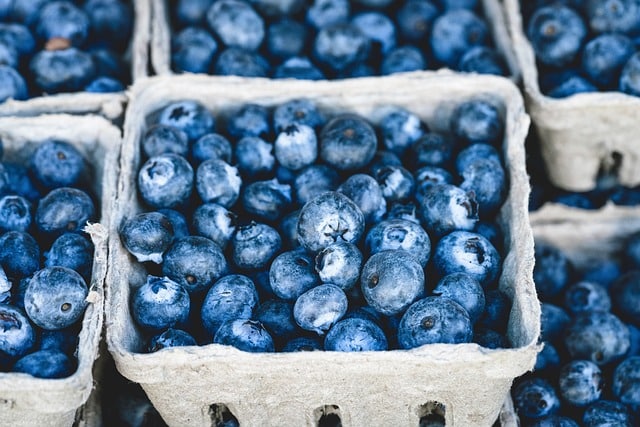Food and beverage industry

We are aware that in the food industry, precise and clear communication is essential for the success of your operations and strategies.
Our team of specialized interpreters is ready to help you overcome any language barriers and ensure your message is conveyed accurately, from production to marketing.
Benefit from our experience in the food industry!
Interpretation, transcription, subtitling and translation services are essential in the food industry to ensure effective communication with suppliers, customers and regulatory bodies.
Find out what we can do for you:
Our experience in the food industry
1. Global Expansion and Export
- Adapting Products to International Markets: Food companies that export to international markets must adapt labeling, product descriptions, and advertising to different languages and cultures. Translation ensures that consumers understand the ingredients, usage instructions, and benefits of the product, which facilitates acceptance in foreign markets.
- Export Compliance: Countries have different regulations regarding food labeling, certifications, and health standards. Accurate translation of labels, export documents, and food regulations is crucial to comply with local laws and avoid penalties or product rejections at customs.
2. Food Safety and International Regulations
- Translation of Safety and Handling Protocols: Food safety is a priority in the industry, and handling, storage and production procedures must be understood by all employees, regardless of their language. The translation of safety and training manuals ensures that workers follow hygiene and risk prevention standards.
- Ingredient and Allergen Labelling: To avoid health problems, it is essential that food products have clear labelling indicating ingredients, allergens and warnings in the local language of the country where they are marketed. This protects consumers and helps companies comply with food safety regulations.
- Translation of Certifications and Standards: Quality certifications, such as those related to food safety (HACCP, ISO 22000) or sustainability (Fair Trade, Organic), are often requirements for selling in certain markets. These certifications and their related documents must be accurately translated to demonstrate compliance with international standards.


4. Communication with International Suppliers and Customers
- Multilingual Negotiations and Meetings: Food companies often collaborate with suppliers, distributors and customers in different parts of the world. Interpretation services in meetings and video conferences allow for fluid communication, ensuring that all parties clearly understand business agreements and production expectations.
- Commercial Documentation Translation: Supply contracts, distribution agreements, invoices and other commercial documents require translation to ensure that all parties understand the terms and conditions accurately, reducing the risk of misunderstandings or disputes.
5. Marketing and Advertising in Diverse Markets
- Cultural Adaptation of the Message: In the food industry, marketing and advertising must be aligned with the cultural and linguistic preferences of each region. Translation and localization of advertising content ensures that messages are effective and culturally appropriate, increasing product acceptance in different markets.
- Subtitling in Advertising and Promotional Videos: With the rise of multimedia content, it is crucial that advertising and promotional videos are subtitled in multiple languages to reach a global audience. This increases the accessibility of the content and improves its impact in different markets.
6. Innovation and Technology Transfer
- Translation of Manuals and Technical Specifications: The food industry is constantly evolving, with new technologies, equipment and processes that require the translation of technical manuals and specifications for their correct implementation in different factories and production plants around the world.
- Training in New Technologies: When a company adopts new technologies in food production or distribution, it is necessary to train workers in their use. Interpretation and translation of these training materials ensure that teams understand how to operate the technology safely and efficiently.
7. Communication with Regulatory and Certifying Bodiess
- Translation of Inspection and Audit Reports: Food businesses must comply with inspections and audits from international and local bodies. The reports of these inspections, as well as corrective action plans, must be translated to ensure that all parties understand the requirements and the steps to follow.
- Interpretation in International Audits: During audits at international factories or facilities, interpretation is essential to ensure that inspectors, employees and managers can communicate effectively, helping to avoid problems of understanding that may affect certification or compliance.
8. New Product Development
- Translating Market Research and Consumer Preferences: To develop products that are successful in international markets, food companies need to understand local preferences. Translating market research and local consumer surveys allows products and marketing strategies to be tailored to the expectations of the target audience.
- Flavor and Formulation Innovation: When developing new products for different markets, it is necessary to adapt formulas, flavors and presentations according to local preferences. Correct translation of development instructions and ingredients is key to maintaining product quality and consistency across different regions.
9. Accessibility and Inclusivity
- Captioning and Transcription for Customers with Disabilities: Promotional videos, recipe tutorials, and other audiovisual content should be accessible to all consumers, including those with hearing disabilities. Captioning and transcription services allow content to be understood by a broader audience.
- Nutritional Information in Multiple Languages: To ensure that all consumers understand the nutritional value of products and dietary recommendations, translating labels and nutritional information is crucial, especially in a world where people have access to products from different regions.

Convince yourself of our experience in the food industry
Write us on WhatsApp or use the contact form on the right
WhatsApp Peru: +51 955071495
WhatsApp Spain: : +34 602525014
Email: info@kvmtraducciones.com